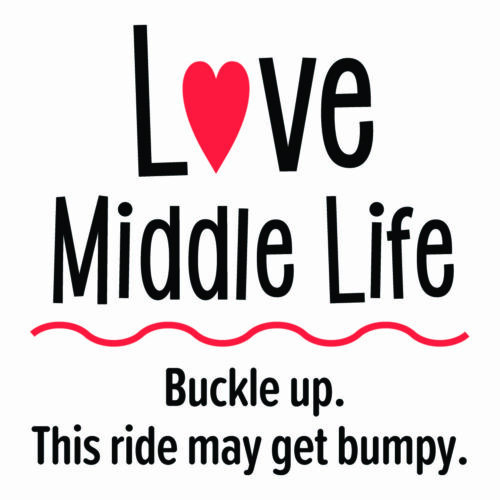In the quiet corners of our lives, where joy and laughter once thrived, there are whispers of heartbreak that only a mother can truly understand. This is a story about two friends, me and Harriet, mothers united by the unimaginable pain of witnessing our beloved sons spiral into the abyss of opioid, alcohol and drug addiction, a relentless monster that robbed them of their lives far too soon. I lost my son to opioid addiction three years ago this October, and Harriet, just a few months ago, lost her son to alcohol and drugs. Our journeys were filled with heartbreak, helplessness, and a realization that sometimes, you have to save yourself when saving your child becomes a battle with no end in sight. It’s a story of struggle, loss, and the profound impact addiction can have on families, leaving scars that never truly heal.
Listen to Harriet and I talk about our journeys on the Love Middle Life Podcast, here.
The Unbearable Weight of Helplessness
To say that having an adult child trapped in the clutches of addiction is agonizing would be an understatement. It’s a feeling of helplessness that consumes your soul. You watch as your child, the one you held in your arms and nurtured through the years, is swallowed by a vicious cycle they can’t seem to escape.
Our sons, like so many others, didn’t choose this path willingly. Mental health struggles, emotional pain, and the allure of the very substances that would ultimately betray them led them down a harrowing road. They were fighters, warriors battling their own minds and the drugs that held them captive.
The Heartbreak of Unfulfilled Dreams
Our sons had dreams, just like any other young person. They had aspirations, talents, and potential waiting to be unleashed upon the world. But addiction doesn’t discriminate, and it doesn’t care about the dreams it shatters.
As mothers, we bore witness to the gradual erosion of our sons’ dreams. The painful reality of seeing their potential squandered by an insidious force is something that no parent should endure. Our hearts broke with each missed opportunity, each unfulfilled promise, and each tearful plea for help.
Practical Advice: If you suspect your child is struggling with addiction, trust your instincts. Seek professional help early and educate yourself about addiction. Don’t carry this burden alone; support groups can provide comfort and guidance during this challenging journey.
The Slow Unraveling:
It all starts innocently enough, a subtle shift in behavior or mood, and you dismiss it as just another phase. But as the days turn into months and then into years, you begin to realize that something is seriously wrong. For Harriet and me, that something was addiction. My son was entangled in the grip of opioid addiction, and Harriet’s son was battling a combination of alcohol and drugs. We watched helplessly as our boys transformed from promising young men into shadows of their former selves.
Practical Advice: Don’t ignore the signs. Trust your parental instincts, and initiate an open and non-judgmental conversation with your child. Seek professional advice and intervention when necessary. Remember, early intervention can make a significant difference in the outcome.
The Mental Health System in America:
Navigating the labyrinth of the mental health system in America is a daunting task. It’s a system that often seems designed to test your patience and determination rather than provide the help and support your child desperately needs. The stigma associated with addiction further complicates matters, leaving parents like us feeling isolated and judged.
Practical Advice: Advocate for your child within the healthcare system. Be persistent and informed, and don’t be afraid to ask questions. Seek out support groups and organizations that can connect you with resources and others who understand what you’re going through.
Treatment Options and Their Limitations:
Finding suitable treatment options for our sons was an uphill battle. The choices were limited, and the quality of care often left much to be desired. Harriet and I exhausted every resource available, from rehab facilities to therapy sessions, but it seemed that the system was ill-equipped to address the complexity of addiction. We watched our sons go through cycles of hope and despair, feeling like we were on an emotional rollercoaster with no way off.
Practical Advice: Explore multiple treatment options and don’t lose hope if one approach doesn’t work. Keep lines of communication open with your child, even if they resist help initially. Remember, relapse is a common part of recovery, and setbacks do not equate to failure.
The Desperate Search for Solutions:
As parents, we were willing to move mountains to save our children, but addiction can be a relentless adversary. We faced countless sleepless nights, tearful pleas, and frustrating attempts at intervention. At some point, we had to confront a harsh truth – we couldn’t save our sons if they weren’t ready to save themselves.
Practical Advice: Understand that you cannot control your child’s choices. You can only offer love, support, and resources. Encourage them to seek professional help and take steps towards recovery, but ultimately, their journey is their own.
The Heartbreaking Call:
The call that every parent of an addict dreads finally came. It was a cold, dark night when I received the news that my son had lost his battle with opioids. The pain was indescribable, a grief that cuts deep into your soul and leaves a scar that never truly heals. Harriet would experience a similar heart-wrenching call a few months later. Our worlds shattered, and we were left to pick up the pieces.
Practical Advice: Reach out to support networks and grief counseling services. Grieving the loss of a child to addiction is a unique and painful journey, and it’s important to seek help to process your emotions and find a way to move forward.
Grief and Healing:
The journey through grief is long and arduous, filled with moments of profound sadness and overwhelming guilt. We questioned ourselves, wondered if we had done enough, and if we could have done anything differently. But grief, as relentless as addiction, also teaches us strength and resilience. Harriet and I found solace in each other, in our shared pain, and in the memories of our beloved sons.
Practical Advice: Allow yourself to grieve in your own way and time. Surround yourself with a supportive community that understands the unique pain of losing a child to addiction. Seek professional help if needed, as healing is a process that requires patience and self-compassion.
Resources for Others:
As we walked this painful path, we discovered resources that offered support and guidance. Organizations like Shatterproof (www.shatterproof.com) became beacons of hope. Shatterproof is dedicated to ending the stigma of addiction and improving access to effective treatment. Their mission resonates with us, as we know firsthand the importance of breaking down the barriers that prevent individuals from seeking help. More resources are listed at the end of this blog.
Practical Advice: Connect with organizations like Shatterproof, which offer a wealth of resources for families affected by addiction. Seek out local support groups and therapy services to aid in your journey towards recovery and resilience.
Our journey with addiction was a brutal one, marked by loss, despair, and heartache. But it’s also a story of love, resilience, and the unbreakable bond between a mother and her child. We hope that by sharing our experiences, we can shed light on the challenges faced by parents of addicts and inspire others to seek help and support.
Remember, you are not alone in this battle, and there is help available. Together, we can work towards a future where addiction is met with compassion and understanding, not stigma and judgment. In the midst of this tumultuous journey, find strength in the love you have for your child and remember that you, too, deserve healing and support.
Resources for Addicts and Those Who Love and Support Them:
- Shatterproof (www.shatterproof.com)
- Shatterproof is a leading organization dedicated to ending the stigma of addiction and improving access to effective treatment. They offer a wide range of resources for both addicts and their loved ones, including educational materials and support networks.
- National Institute on Drug Abuse (NIDA) (www.drugabuse.gov)
- NIDA provides a wealth of information on drug addiction, treatment options, and research findings. Their website offers valuable resources for addicts and their families seeking to understand and address addiction.
- Alcoholics Anonymous (AA) (www.aa.org)
- AA is a well-known fellowship of individuals who have struggled with alcohol addiction. They offer support and recovery resources through meetings, literature, and a 12-step program.
- Narcotics Anonymous (NA) (www.na.org)
- NA is a global community of individuals recovering from drug addiction. They provide support and a structured program for those seeking to overcome drug dependence.
- SMART Recovery (www.smartrecovery.org)
- SMART Recovery is a science-based program that offers tools and support for individuals struggling with addiction. Their approach emphasizes self-empowerment and self-management.
- Families Anonymous (www.familiesanonymous.org)
- Families Anonymous is a fellowship of family and friends who have been affected by a loved one’s addiction. They offer support and a 12-step program to help families cope and heal.
- SAMHSA’s National Helpline (1-800-662-HELP)
- The Substance Abuse and Mental Health Services Administration (SAMHSA) provides a confidential helpline that offers assistance in finding local treatment options and resources for addiction.
- NAMI – National Alliance on Mental Illness (www.nami.org)
- NAMI offers support and education for individuals and families dealing with mental health issues, including co-occurring disorders often associated with addiction.
- Partnership to End Addiction (drugfree.org)
- This organization provides information, support, and resources for families dealing with addiction, with a focus on adolescent and young adult substance use.
- Addiction Policy Forum (www.addictionpolicy.org)
- The Addiction Policy Forum offers a variety of resources and tools to help individuals and families navigate the complexities of addiction and advocate for change.
- Your Local Addiction and Mental Health Services
- Don’t hesitate to reach out to your local addiction and mental health services. They can provide information about treatment centers, counseling, and support groups available in your area.
Remember, seeking help is a sign of strength, both for individuals facing addiction and their loved ones. These resources are here to support and guide you on your journey to recovery and healing.

